模块五第一单元复习讲义
- 格式:doc
- 大小:69.50 KB
- 文档页数:7
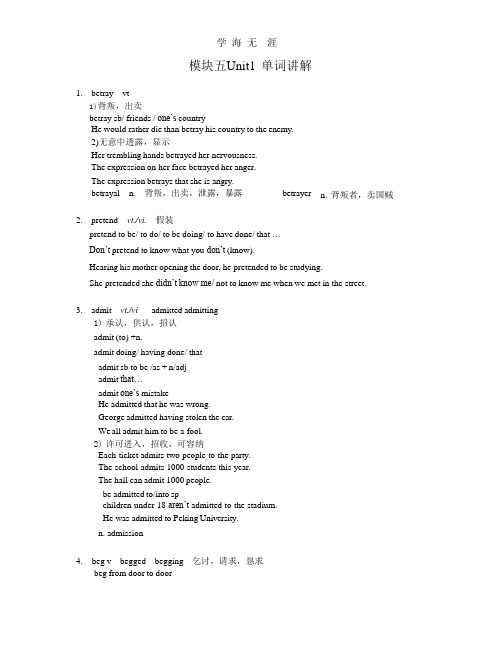
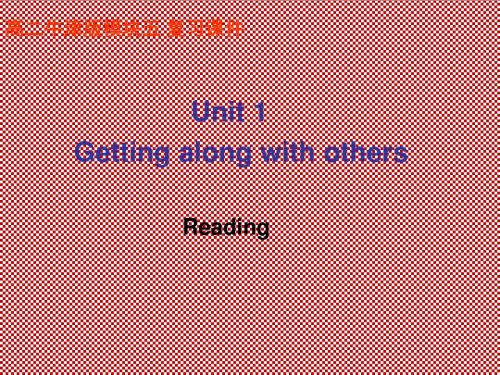

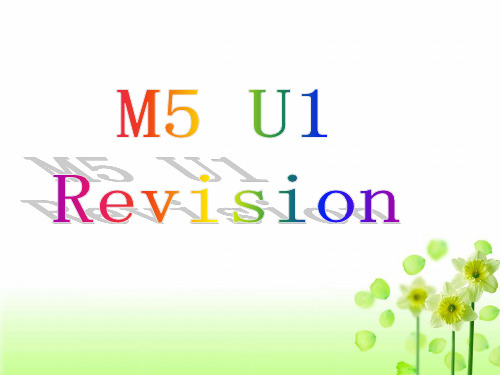
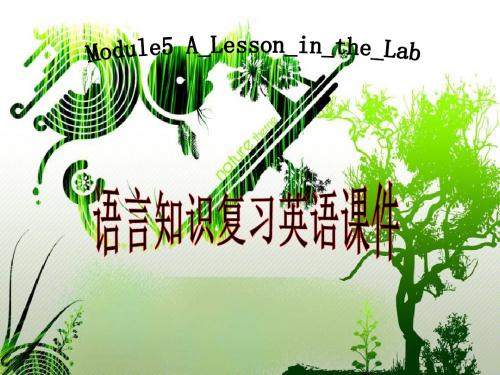
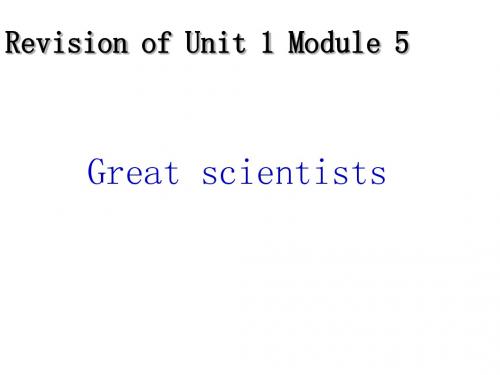
模块5 Unit 1重点单词讲解一.admit vt/vi承认;允许进入,接纳admitted,admitted和admittingEach ticket admits two people to the party.Mr. Smith was admitted into the club as an ordinary memberThe theatre in our town is so big that it can admit 5,000 people.He admitted (to) his mistakes. = He admitted making mistakes.He admitted that he made mistakes.You should admit the task to be very difficult.admission n.允许进入,供认His admission that he was the thief surprised everyone.1.完成句子(1)那个学生承认打破了窗户。
______________________________________________.(2)幸运的是,今年他被一所重点大学录取了。
Luckily,he______ ________ _________ ________ ________ ________this year.2.(2009年高考全国卷Ⅱ)If you leave the club,you will not be ________ back in. A.received B.admitted C.turned D.moved二.forgive vt. 原谅,宽恕,饶恕forgave/ forgiven①If anything happened to the kids,I’d never forgive myself.②I made the mistake of saying what I thought,and he won’t forgive me for it.3.完成句子(1)I think you should ________(原谅) him his rudeness and ________(道歉)to him first. After all,he is your brother.(2)如果你道歉,老师也许会原谅你所做的。
矿产资源开发利用方案编写内容要求及审查大纲
矿产资源开发利用方案编写内容要求及《矿产资源开发利用方案》审查大纲一、概述
㈠矿区位置、隶属关系和企业性质。
如为改扩建矿山, 应说明矿山现状、
特点及存在的主要问题。
㈡编制依据
(1简述项目前期工作进展情况及与有关方面对项目的意向性协议情况。
(2 列出开发利用方案编制所依据的主要基础性资料的名称。
如经储量管理部门认定的矿区地质勘探报告、选矿试验报告、加工利用试验报告、工程地质初评资料、矿区水文资料和供水资料等。
对改、扩建矿山应有生产实际资料, 如矿山总平面现状图、矿床开拓系统图、采场现状图和主要采选设备清单等。
二、矿产品需求现状和预测
㈠该矿产在国内需求情况和市场供应情况
1、矿产品现状及加工利用趋向。
2、国内近、远期的需求量及主要销向预测。
㈡产品价格分析
1、国内矿产品价格现状。
2、矿产品价格稳定性及变化趋势。
三、矿产资源概况
㈠矿区总体概况
1、矿区总体规划情况。
2、矿区矿产资源概况。
3、该设计与矿区总体开发的关系。
㈡该设计项目的资源概况
1、矿床地质及构造特征。
2、矿床开采技术条件及水文地质条件。
(M5) unit1 Getting along with others1. get along/on well with 相处融洽get on with 继续Get on with your work!继续工作吧。
成功2. be busy with3. be worried about4. Apart from5. feel like (doing sth)6. be /feel embarrassed局促不安embarrass sb withsth embarrass sb by doing sth 通过做…使某人窘迫7 . if so/not/possible 8. instead of 9. be/get angry with sb/at(about)sth 10. next to 11. accuse sb of sth指责, 12. speaking of my friend 13. can’t help doing sth14. in silence 16. in public 17. be anchored in 18. before long15.lie with,To be decided by, dependent on, or up to:由…决定,取决于,视…而定19. be responsible for 20. stay up(sit up) 21. regardless adj.(与of连用)不管…的;不顾…的adv.无论如何;不管;22. make it 成功23. Be likely to do sth 24. rather than 25. end up doing sth 26. can’t wait to do sth 27. look back on 28. it is no use/good doing29. rely on 30. look out for 31. be strict with sb 32. . thanks to33. have a quarrel with sb 34. in the world世界上, 究竟35. in conclusion36. without hesitation。
高二英语模块五第一单元语法讲解制作人:胡方强一复习句子结构I was watching an English programme at 8 o’clock yesterday.Scuba diving seems exciting.I can’t find my history book.二复习动词不定式◆带to的动词不定式;●做主语(subject)To decrate the christmas tree is my task.To talk with your mouth full is rude.To bee a lawyer was his childhood dream.动词不定式做主语时,可以用形式主语“it”来保持句子的平衡,避免头重脚轻的情况出现。
上述句子可以改为:It is my task to decrate the christmas tree. It is rude to talk with your mouth full.His childhood dream a lawyer.●做宾语(object)He managed to solve the problem by himself.I like to read newspaper articles about sports.Amy wants to know more about the film “Titanic”.英语当中有许多动词经常接动词不定式来做宾语,这类动词有:want hope wish ask need forget agree know learn promise teach refuse help arrange dare decide determine fail manage offer prepare pretend hate prefer continue mean like begin start try。
模块五第一单元复习讲义一、话题:How to organize a scientific research;二、功能与交际:描述任务(Describing people :characteristics and qualities)1.--How will I recognize you? – You can recognize me because ……2.--What will you wear? –I will wear a /an….3.—What do you look like?/What special features do you have?—I’m tall/short,fat/thin.4.--How will I know you?—I have large/small, brown/green/black eyes with a ….face.三、语法:过去分词作定语和状语(The past participle as the Attribute and Predicative)1、定语:1)感到。
的,指人时常用过去分词作定语2)表示完成的或被动的动作常用过去分词作定语;3)过去分词常用表示脸部或表情的名词前作定语(face/eyes/appearance/expression);4)seated/dressed, hurt/injuried/wounded;destroyed/damaged; polluted/broken/lost/gone/left固定用过去分词作定语。
例如:1)I found a lot of moved students, who were deeply moved by the moving film.2)China is still a developing country while Japan is already a developed country.3)The astonished expression on his face suggested that he know nothing about the matter.4)The seated students suddenly found all the seats were broken ones.2、表语:1)1)感到。
的,指人时常用过去分词作表语;2)表示完成的或被动的动作常用过去分词作表语;3)seated/dressed, hurt/injuried/wounded;destroyed/damaged; polluted/broken/lost/gone/left固定用过去分词作表语;4)get+过去分词作表语(get paid/changed/drunk/burnt/lost/hurt/injurieed/criticized/drowned)。
例如:1)I’m very interested in the intersting story, so will read it again.2)We can’t drink boiling water , but we can drink boiled water.3)Polluted air and water are harmful to people’s health.4)Cleaning women in big cities usually get paid by the hour.(NMET1998)四、主要语言点1、sb be strict with sb. in sth.:Our English is always strict with us in everything.2.put forward : 提出He put forward several interesting plans.put down 记下;取下put out 关掉,熄灭(put out the fire)put aside 放在一边,储存put off 推迟,延期put up 建造,举起put on 穿上;增加(put on the speed/weight)put away 收拾好;整理好;留备后用The plan that you _______ at the meeting is wonderful.Many tall buildings were ________ along the road.Firefighters have been called to _______ the fire in the city centre.He has a little money to _______ for a rainy day.Don’t ______ until tomorrow what can be done today.3.attend v.1)注意,留意. We’ll attend to the solution of that problem later.2)照看,照料.The doctor attended the patients.(3)to be present at 出席,到场. 如:attend school上学attend a lecture听讲座attend church去教堂attend (at) a wedding 出席婚礼4.expose vt.暴露,揭露,使暴光My job as a journalist is to expose the truth.Keep indoors and don’t expose yor skin to the sun.expose…to….使...暴露于..Be exposed to rainand wind.经受风吹雨打5.Neither its cause, nor its cure was understood.人们既不知道它的病原,也不了解它的治疗方法.I’m afraid can’t go with you, because I have _________________(既没时间也没钱)6.every time conj. = whenever “每次,每当”Every time I meet him, I always think of the things happened between us.___ I listen to your advice , I get into trouble.A. the first timeB. The last timeC. next timeD.Every time注意: immediately, the moment, directly, instantly 等与every time一样,都可以用作连词引导时间状语从句,意为“一…..就”。
如:I will give the letter to him immediately I see him.I came directly I got your letter.我一接到你的信就来了。
7.He knew it would never be controlled until its cause was found.Control vt. 控制n. 控制,支配Under control 被控制住/Out of control 失去控制8.Character::1)cn人的品质,性格,特征I cannot she lied to me and it seems so out of character.2) un: 事物的特性,性质,特征总和- In only ten years the whole character of the school has changed. Characteristic:Cn.特征,特性A characteristic of this species is the blue stripe on its back.8.conclude: I, vt 结束,推断出,议定Davis concludes from an analysis of traffic accidents that the speed limit should be lowered.I will be publishing my results only when I have concluded my research.draw a conclusion that…得出一个结论In conclusion 最后,总之Jump to conclusions/a conclusion 冒然断定,过早下结论9.cure: vt治愈- When I left the hospital I was completely cured.a cure for cancera10.absorb: 吸收,吸引,使专心Plants absorb nutrients from the soil.I haven’t really had time to absorb everything he said.Judith was absorbed in her book.Simon was so ________________(沉浸于) his book that he didn’t even notice me come in.This drug is quickly ____________(被吸收)the body.11.severeadj. 严厉的;苛刻的;严格的. 如:The severe trainer has gone abroad. You can breathe freely again. . Adj.剧痛的,剧烈的,严重的,难熬的如:a severe attack of toothache.12.So when another outbreak hit London in 1854 John Snow was ready to test these two theories.1). Outbreak n.突然发生an outbreak of influnenza流感突发2.) hit v.受影响,碰撞,打,击The earthquake hit London./The falling tree hit a car.The boy hit the other boy and was punished by the headmaster13.valuable(1)adj. 值钱的,贵重的如:The watch is valuable. /a valuable diamond.(2) adj. 有价值的如:valuable information(3)n. (常用复数形式)贵重物品.如:Cathy kept her values in a safe.凯西把她的贵重物品藏在保险箱里.14.Next,John Snow looked into the source of the water for these two streets.其次,约翰.斯诺调查了这两条街的水源。